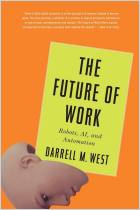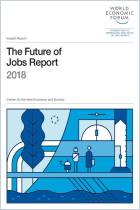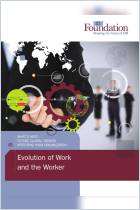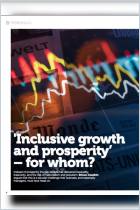Technological innovations, the expansion of the “green economy” and demographic changes will create new employment challenges; but according to this report from the International Labour Association’s Global Commission on the Future of Work, these developments also present new opportunities. If governments, private employers and workers’ organizations take action, they can reverse negative trends such as rising inequality and create a stronger, juster and more secure socioeconomic future for all. To that end, the report’s authors propose a “human-centred agenda for the future of work.”
Governments, private companies and workers’ organizations need to band together to create a more equitable, people-centric economy.
Technological innovations and the expansion of the “green” economy are rapidly changing the nature of work – eliminating many jobs, but creating others. At the same time, demographic shifts are putting pressure on social safety nets and labor markets. Left to continue their current course, such developments will likely increase wealth inequality as well as gender and regional divides. Moreover, high unemployment, mass poverty and other ills will continue to undermine social unity and bolster support for isolationism and populism. Consider the facts: Unemployment is high among young people, who account for 64.8 million of the 190 million unemployed workers, globally.
At the same time, ongoing disruptions open new opportunities for governments, private companies and workers’ organizations to rewrite the existing social contract, thus, boosting economic equity and worker protections. Social contracts are premised on the notion of reciprocity. Workers contribute to their nations’ economic flourishing, and in...



















Comment on this summary or Démarrer une discussion